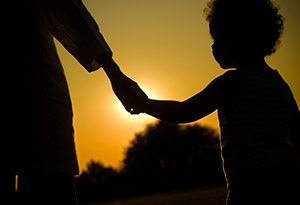Colorism and the True Definition of Beauty

Photo: Getty Images
Dr. Cheryl Grills, a psychologist featured in the documentary Dark Girls, and her colleagues at The Association of Black Psychologists join together to present a comprehensive overview of the issues raised in the film, including what don't know about colorism. Read an excerpt below.
In the midst of colorism, we are not without tools to protect ourselves. ... Basic practices can be put in place in neighborhoods and communities, schools, the media, and in the home to foster positive images for the young, thus changing the negative effects of colorism. One effort being launched by The Association of Black Psychologists, in conjunction with the Community Healing Network, are Emotional Emancipation Circles (EECs). EECs are community-based gatherings of African Americans working together to defy the lie of Black inferiority and embrace the truth of Black Empowerment. These self-sustaining community gatherings seek to promote resilience and resistance to colorism. Want more information about colorism and its lasting affects? Click here to download and print The Association of Black Psychologists' complete overview.
Teaching our children about their history and cultural heritage is another important way to promote resilience and offset the negative effects of colorism. Teaching Black history (a global history and a history that includes the pre-enslavement period) can build a sense of ethnic identity and self-concept that serves a protective function (Townsend, et al., 2010; Wallace et al., 2012). ... Within the cultural heritage of people of African ancestry, character plays a prominent role in the assessment of beauty.
As one African American proverb suggests: "Beauty is as beauty does." A single monolithic standard of beauty is untenable; it makes no sense. Nature, with its phenomenal diversity, provides a model of the range and variety that beauty may assume. Thus, a lily is no more beautiful than a rose; an oak tree no more beautiful than a palm tree; and an opal no more beautiful than a pearl. Each is beautiful in its own right and each has unique value and plays a special role in nature (Jackson-Lowman, 2013, p.169).
Beauty in our cultural context meant, "Being beautiful first and foremost in your actions toward others." Thus, from a traditional African perspective, no one is inherently beautiful. Beauty is dynamic and contextual. Worth and value are assessed on the basis of what you do. What you do is a reflection of your character and contribution to the community. That is the source of your true beauty, not your mere physical appearance. These values can be re-instilled and made salient for our children, families and communities.
ABOUT THE ASSOCIATION OF BLACK PSYCHOLOGISTS
The Association of Black Psychologists is organized to operate exclusively for charitable and educational purposes. The Association sees its mission and destiny as the liberation of the African Mind, empowerment of the African Character, and enlivement and illumination of the African Spirit.



